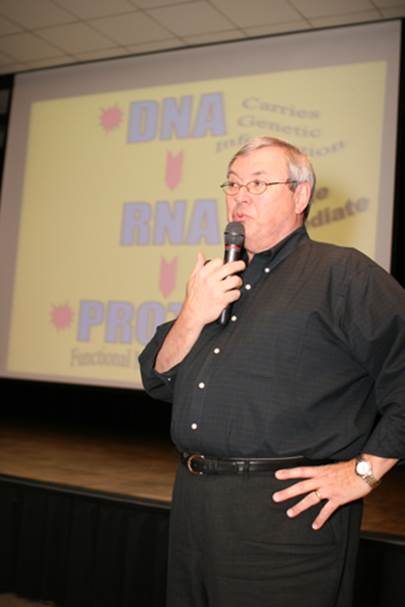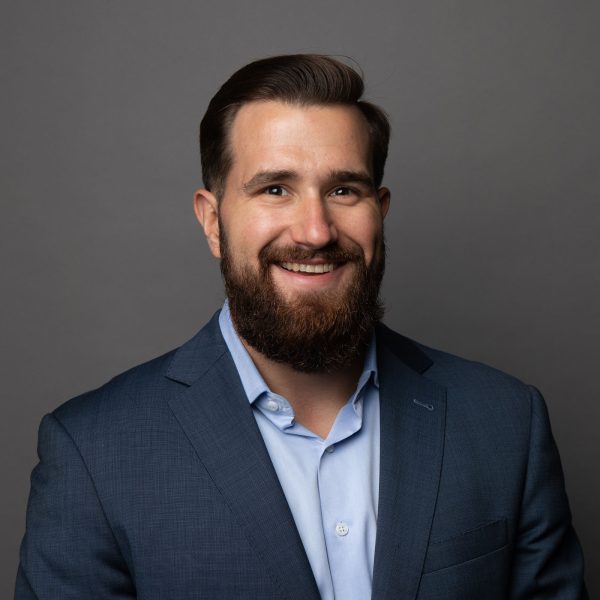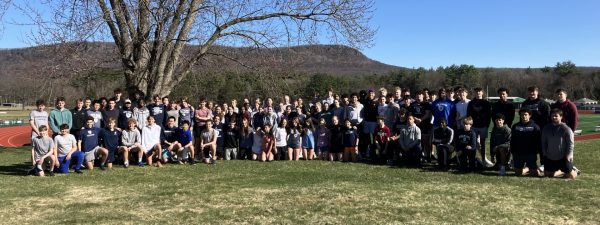Genetics Update Conference
On Friday, September 27th, a Genetics Update Conference (GUC) was hosted in the auditorium here at Williston. From 9am to 1pm, genetics students listened to and learned from genetics expert and teacher, Sam Rhine. Since it was an external event, tickets were available to the public. The conference covered updates in the field of genetics, including cancer, biotechnology, cloning, stem cells, and the prevention of birth defects.
The existence of cancerous cells is contributed largely to genetics. Biotechnology is the science behind how living things can be put to use to make human products. Cloning is the process in which an exact genetic replica of a cell, tissue, or organism is formed from the gene pool of the original specimen, which requires DNA, or deoxyribonucleic acid. Stem cells are cells of origin that have the chance of becoming any type of cell in the body. These were just some of the topics covered in the conference in comparison to all that was talked about by Mr. Rhine at the conference.
Mr. Rhine, who now resides just outside of Indianapolis, Indiana, studied at the Indiana University where he earned his B.A. as well as his M.A. He later became a doctoral candidate at the Indiana University of Medicine. He was then asked to host the Lalor Foundation Fellowship at Harvard Medical School. Mr. Rhine was awarded the National Association of Biology Teachers (NABT) honorary member award in 1997. To add to his achievements, in February of 2007, Mr. Rhine won the Distinguished Hoosier Scholar Award given by the Hoosier Association of Teachers. He has even traveled to give conferences outside of the U.S., in Toronto, Montreal, Tokyo, Vienna, Prague, St. Petersburg, Russia, and Nairobi, Kenya.
Mr. Rhine specializes in teaching students how to apply biology to real life. For thirty years, he has been traveling and giving these conferences at different schools and conventions, educating high school students on advances in genetics, where the most prominent research are, and job opportunities in the field of genetics. He is known for his gift of public speaking and his ability to take facts out of a text book and apply them to real life.
Emily Grussing, an 11th grade student who attended the conference. She found that the conference was interesting and informative. Although Mr. Rhine is an accomplished educator, she described Mr. Rhine as “a guy who’s passionate about teaching young adults science.” She explained that Mr. Rhine was “reassuring about the fact that a lot of what he said was beyond the scope of any science classes we had ever taken; he said we shouldn’t worry about most of it until college.” During the conference, Mr. Rhine describes himself and other experts as being “scientifically literate,” which implies that they are knowledgeable, yet still learning. Although the conference covered advanced material, Mr. Rhine seemed to create a relaxed, stress-free environment throughout the lecture.
The accomplished educator covered a broad spectrum of topics, from the biology of genetics to new genetic discoveries, such as how to grow a brain from stem cells in a Petri dish and how to grow a heart for a heart transplant from a patient’s own cells. Emily told said that she knew almost nothing about stem cells before, but now she feels like an expert.
Maggie Cummings, also from the junior class, attended the conference. She, too, is a genetics student who came away from the event with a positive experience. She found that Mr. Rhine was interesting and passionate about the topics he discussed. Maggie said that she learned a lot about stem cells and other cells that are considered “biologically immortal,” which, as the name suggests, are cells that do not die. Stem cells are cells that aid in a body’s healing process, changing into whatever kind of cell the body needs. Maggie found the discussions about the brain and the heart in the Petri dish particularly fascinating as well. She explained how if this type of research develops further, it will help people live longer and healthier lives.
Overall, the conference gave Williston students the opportunity to learn more about the field of genetics while encouraging them to dive deep into the subject. Mr. Rhine’s passion for the subject and love of teaching was portrayed to his audience. Genetics students who attended the conference were given information and facts as well as contemplative ideas, which will help them in their future studies.








